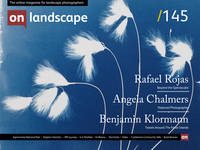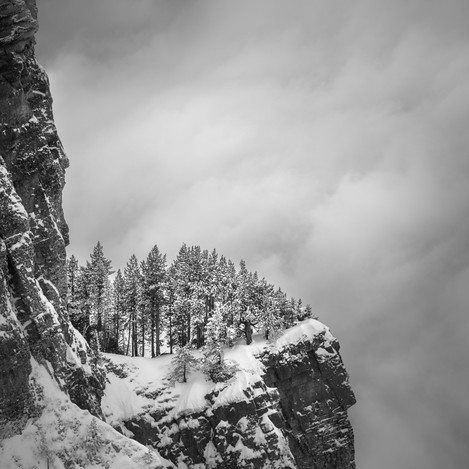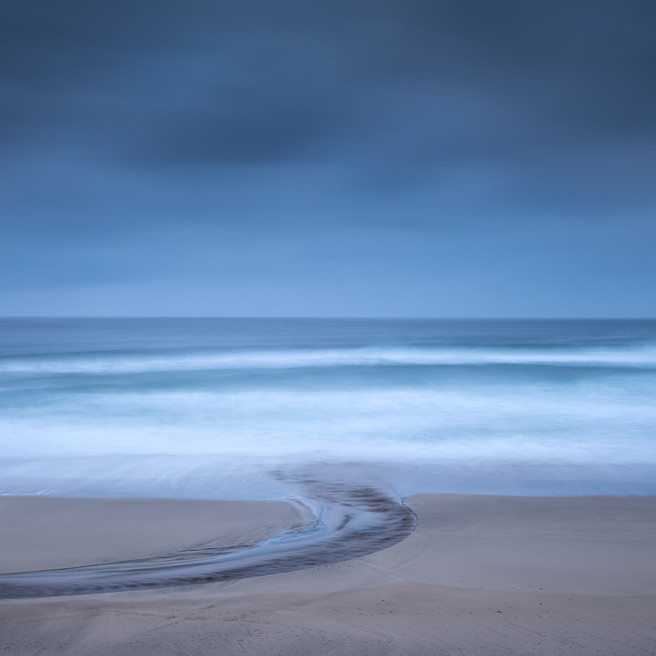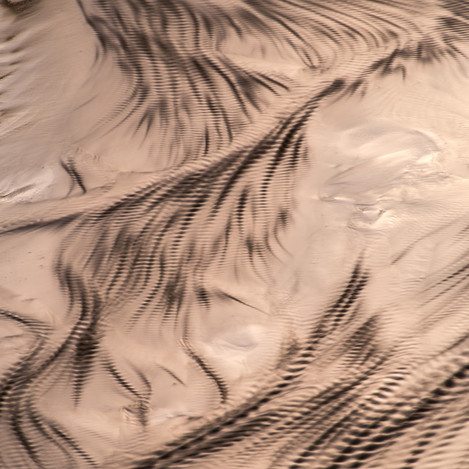Pushing the boundaries of what extraordinary is

Rafael Rojas
Rafael Rojas (Master Hasselblad 2014, MA Photography, ARPS), is a Swiss and Spanish full-time artist photographer, lecturer, author, and creativity mentor.
He has been involved in teaching most of his life, first helping young students, then teaching undergrads, and later as a university lecturer.
Nowadays, his teaching activities focus on helping photographers see the world with different eyes and use photography as a tool of personal and creative expression.
After seven years of work, the MasterCOURSE “Photography with Intent”, an intensive mentoring program for Expressive Photographers, has become the apex of his teaching career and his utmost contribution to the Community of Photographers.
Imagine incredible northern lights, dancing over a "Tolkeniesque" landscape of sharp granite towers, glaciers pouring down towards the ocean, the Moon shining through moody clouds and a polar bear standing on a rocky outcrop. Well, that has been photographed already.
What about massive UFO-like lenticular clouds set ablaze by the light of sunrise, hovering over an otherworldly landscape filled of frosted trees and frozen waterfalls? Done, too.
Massive icebergs with milky ways? Done. Towering dunes at sunset in a sandstorm? Ticked too. Tropical islands framed by impressive waves with white sharks in the foreground? Done...
What is left then to landscape photographers? Vision and introspection.
What is extraordinary?
Most photographers want to make images that are "better" and "different" than the rest. In other words, "extraordinary". But what does "extraordinary" mean? According to the dictionary, extraordinary is something "unusual and surprising". That is, something is extraordinary when it takes us out of what we are used to seeing, experiencing or feeling in our everyday life. We could conclude this quality is way more related to the concept of "scarcity" than "quality".
It could be thought that whenever a landscape photograph is made, a certain conversation takes place between a certain place and a human being, who stands behind the camera. However, the degree of participation of each of the speakers in this conversation can vary strongly. On some occasions, the photographer becomes a recorder of what the landscape has to say. On other occasions, the landscape becomes the microphone through which the photographer speaks up. When a photograph, the result of that dialogue, is extraordinary, it tells us something we did not know, or something we never saw or heard about, something new, unusual, surprising. This surprising message can come from the landscape itself, from the way the photographer sees the world, or as a collaboration of both.
At one extreme of the situation, we can choose to delegate the job and create "extraordinary" images by looking for "extraordinary" places and let them talk alone. This is the easy route, being nowadays easier than ever for a number of factors.
As human beings, we have evolved in a growingly urban environment, away from nature and its wonders. Most of the world population lives today confined to an ecosystem of concrete, asphalt and carpet. Our habits have changed and so also what we see and experience every day of our lives. Today, things that our ancestors lived and considered "ordinary" for millions of years, like contemplating a sunrise or gazing a star filled night sky, have become something rare and unusual. In a way, progress has brought with it a strong homogeneity and limitation in terms of life experiences, making most human beings grow used to a very similar and reduced reality which pushes them to find "extraordinary" what before was not.
Paradoxically, traveling to faraway places has become increasingly easy these days. Expeditions that took weeks and great lengths of logistical effort in the old days are nowadays easy commutes for most people with a minimum of skills, financial resources and physical fitness. In less than 48 hours, we can virtually be in any place of this planet, any ecosystem, any environmental situation.
To end with, photographic cameras have grown more and more portable, allowing us to record the world that stands in front of a lens at ease. We do not need to haul hundreds of kilograms of large format cameras, glass plates and chemicals anymore like it was needed a century ago.
Today, we can very well leave our home with our camera conveniently fit into a small bag, catch a flight, travel to an "unusual and surprising" location, record a few images and bring them back to the urban reality where most people live. With a minimum of technical and compositional skills, we will be able to record the monologue of the landscape and bring back its extraordinary quality to our peers. The likely result will be an extraordinary image, possibly awakening an extraordinary reaction from the audience and eventually making us extraordinary photographers.
The problem with this approach is that it only leads to a dead end: becoming the universal photographer.
The problem with this approach is that it only leads to a dead end: becoming the universal photographer.




